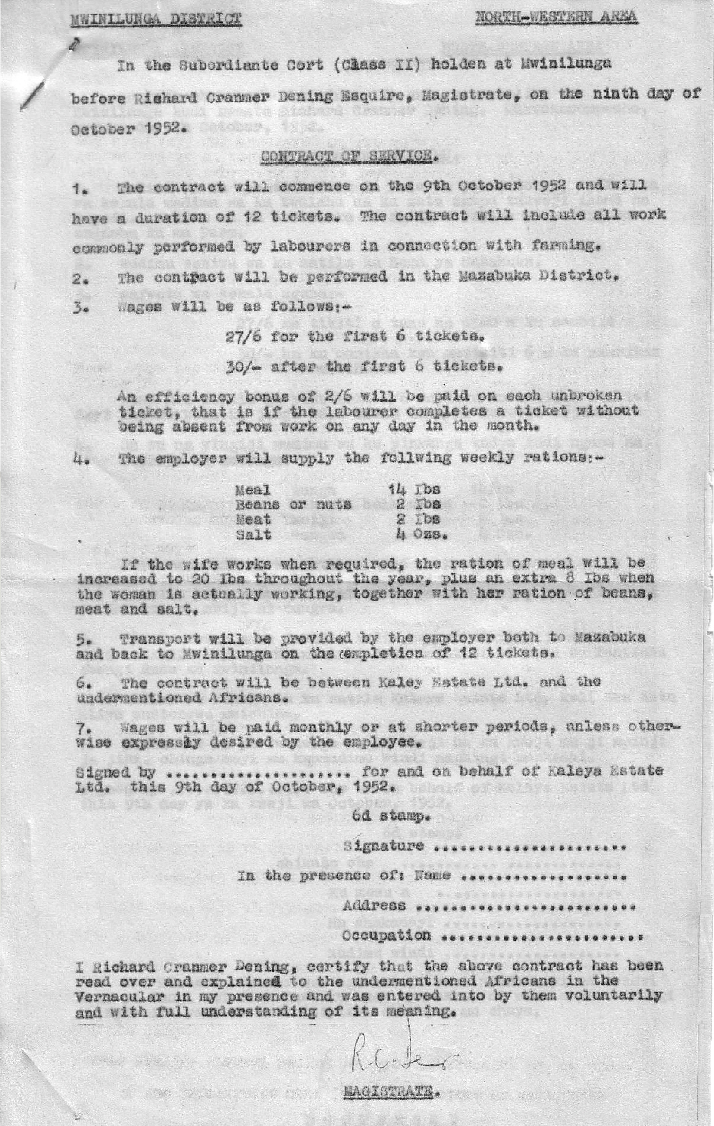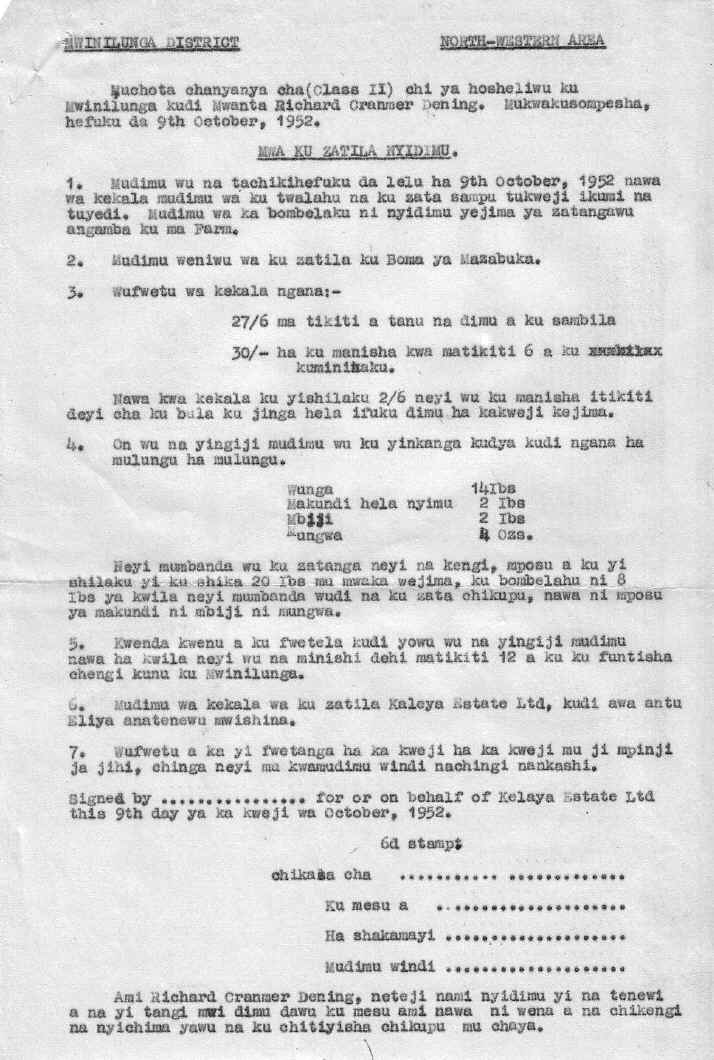Dispensing Magisterial Justice
Richard (Tim) Dening, was a District Commissioner in
Mwinilunga in Northern Rhodesia (which later became Zambia) in the early 1950's. He was
responsible for administering an area the size of Wales (about 20,000 sq
Km) and included amongst his many
duties was that of local Magistrate.
He had to become a lawyer in order to function as a
Magistrate Class 2 and was also required to achieve a Higher Standard in the Lunda
language. There was no police as such, just a force of local District Messengers, who
acted as the Commissioner's agents throughout the District.
 |
Tim held court in his
District, acting as both Prosecutor and Defence Counsel, ensuring fair play and dispensing
Justice in a wide range of disputes and infringements of the law. These ranged from petty
infringements to much more serious ones, although he was not permitted to try murder cases
and any such cases arising had to be referred to the High Court in the capital, Lusaka. |
Elisabeth (Betty) Dening, his wife,
tells a story illustrating the somewhat different sense of justice of the local people to
that of their colonial administrators.
A man (lets call him 'Tickie') in one of the villages
in Tim's District got into a dispute with another fellow, which eventually came to blows.
During the fight, he landed a punch in the area of his opponent's spleen which
subsequently led to his opponent's death. Ordinarily, such a blow would not have had such
dire consequences, but many of the Africans suffered from enlarged spleens as a result of
repeated bouts of malaria. Tickie was subsequently tried for murder but got off with minor
penalties because of the extenuating circumstances.
Now there was another man living in the same village
who was roundly hated by all. Some of the villagers got together and, based on the fact
that Tickie was known to have committed murder once and got away with it, made him a
proposition. They asked Tickie to get rid of the man everyone hated and in return they
would pay him a certain number of sheep and goats.
Tickie agreed to the bargain and in due course, invited
the unpleasant fellow out hunting with him, using it as an opportunity to engender another
fatal 'accident'. However, having now got what they wanted, his erstwhile 'employers'
reneged on the deal and refused to pay Tickie his agreed due of sheep and goats.
Incensed by this injustice, Tickie presented himself at
Tim's office, explained the situation and asked Tim to administer justice and force his
compatriots to honour the deal. However, faced with a self- confessed murderer, Tim of
course had to have the man arrested. He sent word to Lusaka to arrange for Tickie to be
sent to the capital to be tried, but in the end, the Court decided to come on a visit to
the District instead.
In the course of the trial and the hearing of Tickie's
evidence, it became apparent that Tickie had actually been hunting just over the nearby
border and had done the dastardly deed in Angola, rather than in Northern Rhodesia. Now a
quandary arose, because Angola had no extradition treaty and the murder had been committed
outside the court's jurisdiction. The case was thrown out and Tickie once more walked
free.
The very next morning, Tickie re-presented himself at
Tim's office, once again asking for restitution of his lost payment of sheep and goats.
Needless to say, he got short shrift and it is assumed that he never did get paid for his
fulfilled contract!
Example of a Service Contract


|

